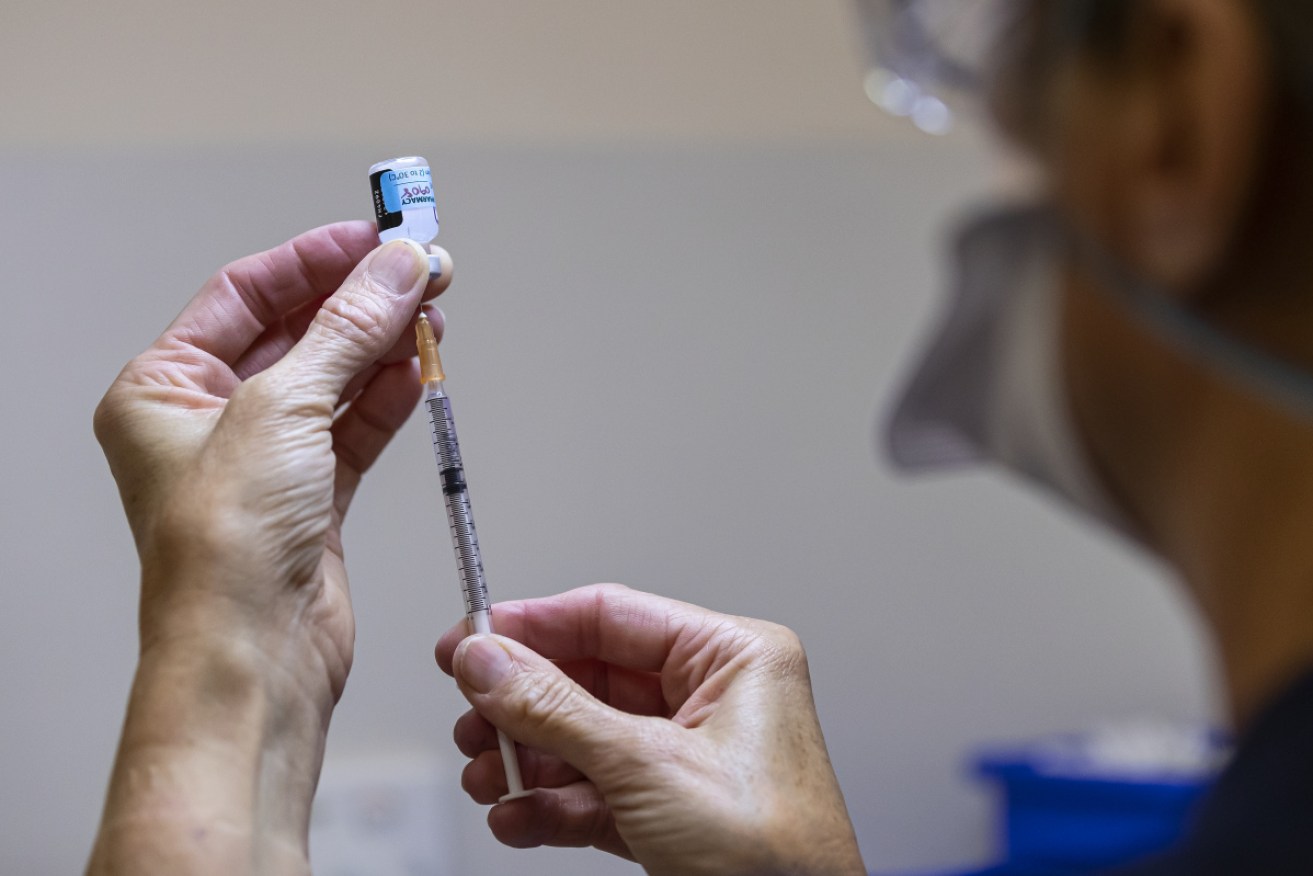Pfizer tick for young children imminent

An inquiry's been told that GPs in outer Melbourne are on the point of breakdown, due to workload. Photo: AAP
Pfizer vaccines for children as young as five are expected to be approved by Australia’s medicines regulator by the end of the year.
Chief Medical Officer Paul Kelly indicates the green light is imminent from the Therapeutic Goods Administration on vaccinating children aged between five and 11.
“The TGA has received their advice from Pfizer. In terms of an application for that age group they are going through that process,” he told the ABC on Tuesday.
“That is a really important factor that will come through in the coming weeks, by the end of the year.”
It follows Prime Minister Scott Morrison stressing caution is needed on whether to approve the jab for younger children.
“We won’t take further steps unless there is clear medical advice that we should proceed,” he said.
Meanwhile, new modelling indicates rapid COVID-19 tests can keep students in classrooms even when there is an outbreak.
Updated Doherty Institute data recommends schools use rapid antigen tests instead of 14-day quarantine measures if a student or staff member tests positive.
Students would be allowed to return to classrooms if they return a negative test under the modelling handed to national cabinet on Friday.
“We do expect school children who are essentially under the age of 12, currently unvaccinated, to be exposed to the virus,” Professor Kelly said.
“There are some things we can do to prevent that and respond in ways that have an important outcome, which is about keeping schools open and having kids at school.”
Pilot programs are underway for a “test-to-stay” approach, with the Doherty Institute’s Jodie McVernon expecting it to be used more widely in 2022.
The modelling indicates rapid testing is as effective as preventing transmission at school as two-week quarantine measures.
A “test-to-stay” approach was found to result in just one more infection in primary schools and six fewer cases in high schools compared with having an entire class quarantine for 14 days.
But experts have cautioned against applying this approach to offices.
“There are reasons to believe that tests-to-stay in the workplace could be different to tests-to-stay in the schools,” the Burnet Institute’s Nick Scott said.
“We don’t want to draw that conclusion until (modelling) has been explicitly done.”
More than 80 per cent of Australians aged 16 and older are double-dosed, while nearly 90 per cent have received one jab.
NSW recorded 187 new infections and seven deaths on Monday. There were 1126 more cases in Victoria alongside five more deaths.
The ACT recorded 13 new cases.
– AAP








